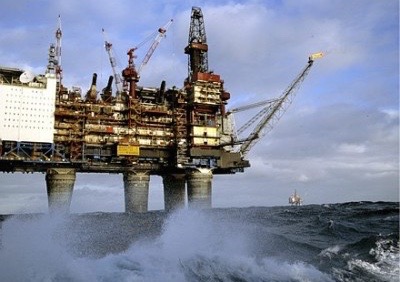Norway’s environmental directorate has uncovered serious violations at a string of Equinor facilities, ranging from chemical spills at offshore platforms to leaks of climate gasses at Equinor’s Mongstad refinery. The findings refute constant boasting by Norwegian government and oil industry officials that their oil and gas production meets the highest environmental and climate standards in the world.

Newspaper Dagens Næringsliv (DN) reports that Equinor has emerged as a repeat offender, failing to follow up and correct violations found over the past several years.
After a new round of inspections, the environmental authorities claim that violations have been uncovered at so many facilities that they can’t be viewed as isolated incidents. They’re warning that Equinor may have a bigger problem.
“This raises questions about leadership,” Bjørn Bjørnstad, leader of inspection and supervision at the state environmental directorate (Miljødirektoratet), told DN. “This is a case where people haven’t been doing their jobs.”
Bjørnstad and his colleagues have called in top Equinor management to explain themselves at a meeting at the directorate in January. “We’re not just talking any longer about the leadership out on the installations, but also about leadership of the company,” Bjørnstad told DN.
Equinor leaders now stand accused of violations at several facilities, at oil fields around the entire Norwegian Continental Shelf and on land. “That’s why we want to talk with the management of Equinor, which has a mandate to handle these violations and correct them,” Bjørnstad said. “We want them to explain why this has happened and what they’re doing to improve the situation.”
Embarrassing in the midst of a PR campaign
An Equinor spokesman, Morten Eek, confirmed that Equinor received a letter from the directorate on Thursday. He said it was “important” that the authorities receive answers to their questions and for Equinor to account for itself, but “we don’t want to comment on this before we have the meeting.”
The timing of the summons and public reprimand can be particularly embarrassing for Equinor, which is in the midst of a major public relations campaign tied to the 50th anniversary of the discovery of oil in the North Sea. Equinor is also under intense political pressure and criticism from a rapidly growing climate- and environmental lobby, as is the government and its oil and energy ministry that continues to open new offshore fields for oil and gas exploration.
Equinor has also been hosting “dialogue meetings about climate and energy” with the public, especially targeting Norwegians between the ages of 18 and 35. It’s all part of an effort to “win young hearts and minds,” as commentator Lars West Johnsen wrote in newspaper Dagsavisen last weekend. He could also note how some of Equinor’s promotional placards around Oslo have been defaced:
“Why are we still looking for more oil?” queries one of the placards in the PR campaign, calling on readers to go to Equinor’s website for the answer. Instead someone had scribbled on a placard at Tøyen:
“Because greed and profit are more important than future generations.”

Now Equinor will have to account for a series of environmental violations despite all its own boasting that Norwegian oil and gas are better and cleaner than that produced elsewhere in the world. DN reported last sommer that Equinor had been criticized for several deficiencies at its Gullfaks field off Florø, including how Equinor’s three platforms at Gullfaks didn’t inform one another about violations and thus prevent more.
“They haven’t learned from their mistakes,” Ingvild Marthinsen, leader of petroleum operations for the directorate, said at the time. “We are surprised by the lack of follow-up from Equinor.”
‘Violations aren’t corrected’
It would appear from the new summons that Equinor still hasn’t learned. According to the letter sent to Equinor management this week, “the problems we have seen on the Gullfaks field are repeated at several other fields. The violations aren’t corrected by the next inspection, indicating weak follow-up of the regulatory framework.”
The include violations at the former Statoil’s Mongstad facility of rules that have existed since 2008, including the lack of a system for identifying leaks of climate gasses. Equinor’s Troll B platform in the North Sea has had illegal chemical spills from sea water pumps. A warning about that was sent out in 2017, but the platform still couldn’t document that anything had been done to limit spills.
When the directorate pointed out deficiencies in a preparedness plan at the Snøhvit field in 2018, Equinor replied that the plan would be corrected by January 1, 2019. Six months later, when the inspectors retuned, that still hadn’t been done.
Expected more of Equinor
“When we are told that deficiences will be corrected, we must be able to rely on that,” the directorate wrote in its letter to Equinor.
“This is one of the biggest companies in the country, and the most professional milieu in Norway,” Bjørnstad stressed. “Then we expect that they manage to follow environmental rules.”
He added that since several of Equinor’s oil fields have now been in operation for many years, with revenues declining as production costs rise, “it’s more important than ever that Equinor is highly conscious about spills and environmental consequences.”
Equinor’s spokesman said the company felt that it was following up faults found during inspections. “Our experience is that dialogue can make both us and the inspectors better at keeping one another oriented … it’s important for us to clarify what they want,” Eek said. Beyond that he said the company did not want to comment further until after they’ve been in the meeting with the directorate.
newsinenglish.no/Nina Berglund

